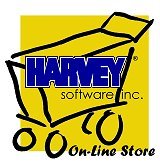
 Shipping Tools Shipping Software Solutions Enterprise Shipping Solutions Shipping Solutions by Industry Email Management Solutions Integrated Solutions System Requirements Client Success Stories Client Services Service Plans Product Training Recent Updates Support Log On Parcel Tracking Company Resources Upcoming Events Business Partners News Careers FEEDBACK ) ))
|
The Internet has changed the way you do business. You are reaching more potential customers than ever before. To thrive in this boundless new marketplace, you need to respond to your customers, provide them with the proper information and make them feel their business is important to you - all in a matter of seconds. If you can accomplish that, you will also need another fast, cost-effective way to process the flood of orders and deliver your products. Today, companies that want to succeed must do a better job of automating their business processes while improving customer service. The eDATA Processing System (EPS) can help you do just that. EPS is unique because it is software you own - not a third party service that you continue to pay for as long as you use it. Because it is installed on your computer, you are in control - of your advertising strategies, of the mailing lists EPS builds, of the security of your customer data. No other service or software protects your company data like EPS.
EPS can maintain up to 10,000 mail accounts, and assign up to 1000 functions (or processes) to each account. Processes include auto-response, forwarding, saving to the customer database, exporting to a file, exporting to CPS, routing, address and document label printing. Each process can be defined by fieldnames or search techniques from data contained in the e-mail address, subject line or message text. Processes for each account can be cloned for quick set up, and are easily viewed and printed. EPS auto-responds to e-mails received. EPS will automatically send a response to anyone submitting a web form or sending e-mail. Reply messages are composed in the EPS Reply Editor, and any data contained in the e-mail address, subject line, message text or form field can be used to personalize the response. Replies can also be saved to a file and printed for backup or documentation purposes, or forwarded to another e-mail address for follow-up. EPS also has the ability to block any e-mail address (or portion of an address, like @competitors.com) from receiving automatic responses. EPS will automatically forward incoming e-mail to an address you specify, one found in a database field or using a database lookup. One message can even be forwarded to multiple addresses - accounting and shipping departments, for example. Messages that cannot be processed can also be forwarded to a specified address and a reply sent to the sender, to eliminate "lost" messages. EPS save data collected for later use. Each EPS account process has a database associated with it to personalize responses, determine forwarding criteria and export incoming data to a file (comma delimited or fixed length). There are seven fixed fields, including Customer ID, Date, Time, Sender E-Mail Address and Subject. Other fields may be added, edited and deleted and translations are supported. EPS can also build a customer database from data gathered from any or all incoming mail to build an OPT-IN mailing list. EPS has a basic Label Editor to allow set up and configuration of address labels. Labels can be printed automatically after an e-mail is processed, or at the "end-of-day" in a batch. The Customer/Order ID number assigned to each EPS transaction prints on the label to provide a complete audit trail for customer orders and requests. In addition to the basic Label Editor, EPS has the powerful Parcel Automation Language (PAL) Editor for creating custom address and bar coded labels. The advanced PAL Editor is actually a programming tool that can be used to edit every component appearing on the label. EPS can be linked to CPS for fast shipping. EPS easily links to Harvey Software's Computerized Parcel System (CPS) for fast shipping. The data appears on the shipping screen when the Customer/Order ID number is entered. Weight and service selection can be defaulted, and labels can be printed automatically. CPS can also send customers tracking numbers (via fax or e-mail) to track their own orders as they are shipped. Other problem solving features. What else can EPS do?
|
Copyright © 2009 Harvey Software, Inc. All rights reserved.
Now celebrating over 25 years of service in the shipping software industry!
Home
|
Products
| Shipping Software
| Success Stories
| Contact Us
| About Us
| News
| Careers
| Support
Privacy Policy
| Purchase Policy
| Trademark & Copyright
Notices |
Feedback
| Hours


